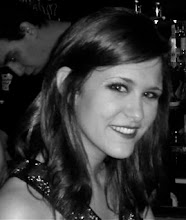Over the weekend, an unthinkable tragedy occurred in Athens. A marketing professor from the University of Georgia, George M. Zinkahn, fatally shot his wife and two other members of their theater group. The shooting occurred on Prince Avenue, just minutes from campus and downtown. I was working downtown at the time (this weekend was the Twilight Criterium, one of the biggest weekend celebrations in the history of Athens) and found out when one of the customers at the bar asked me to turn the TV to CNN, because Athens was on the national news.
I had no idea what he was talking about, which I realize is completely my own fault for cancelling UGAAlert. When I cancelled it, the website asked if I was sure that I wanted to cancel the subscription, and explained the risk that this may entail. Looking back, I can't help but realize how ironic it was that I cancelled it right before the biggest crisis to occur in my time as a UGA student. In all honesty, I probably wouldn't have even seen the text message or received the phone call (if I even got one, since they were known to be unreliable). I was busy at work and certainly didn't have time to check my cell phone every time it vibrated in my pocket. But now I keep wondering if UGA could somehow require all students, faculty and staff to sign up for this service. Sure, it was annoying to get three texts in a row when Athens is under a tornado warning, then the warning has been lifted, then its back on. And for some reason, even though I asked for only texts (so I could read them in class), I still always got multiple voicemails whenever something happened. However, I think most students would rather be safe (and slightly annoyed) than sorry.
After speaking to several of my friends who still did have UGAAlert, I found out that a message was sent out - an hour and a half after gunshots were heard at the community theater. Apparently the message was held up because the University wanted to ensure that Zinkahn did not receive the message, alerting him to the fact that everyone knew what he had done and was looking for him. While I commend them for realizing this important detail before immediately sending out a message to everyone on the contact list, this is something that should have been realized years ago when this system was started. Our system was prompted by the Virginia Tech shooting, therefore the University should have thought about the fact that there may be a need to exempt certain people from alerts. An additional 20 minutes was spent figuring out how to do this, at which point the University realized that Zinkahn's only contact number was a landline at the University.
Thankfully, nobody else was harmed after the initial shooting, so the delayed alert did not have any negative effects. I realize that an innovative system such as this takes time to perfect, and I can only hope that the University gets the details figured out before the next time they need to use it.







